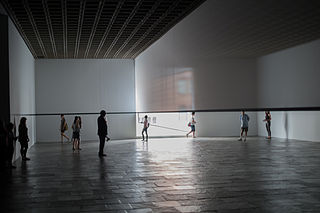A Quote by Henry Ward Beecher
Every green thing loves to die in bright colors. The vegetable cohorts march glowing out of the year in flaming dresses, as if to leave this earth were a triumph and not a sadness. It is never nature that is sad, but only we, that dare not look back on the past, and that have not its prophecy of the future in our bosoms.
Related Quotes
The green prehuman earth is the mystery we were chosen to solve, a guide to the birthplace of our spirit, but it is slipping away. The way back seems harder every year. If there is danger in the human trajectory, it is not so much in the survival of our own species as in the fulfillment of the ultimate irony of organic evolution: that in the instant of achieving self-understanding, through the mind of man, life has doomed its most beautiful creations. And thus humanity closes the door on its past.
Marriage is an effort to legalize love. It is out of fear. It is thinking about the future, about the tomorrows. Man always thinks of the past and the future, and because of this constant thinking about past and future, he destroys the present. And the present is the only reality there is. One has to live in the present. The past has to die and has to be allowed to die.
Only part of us is sane: only part of us loves pleasure and the longer day of happiness, wants to live to our nineties and die in peace, in a house that we built, that shall shelter those who come after us. The other half of us is nearly mad. It prefers the disagreeable to the agreeable, loves pain and its darker night despair, and wants to die in a catastrophe that will set back life to its beginnings and leave nothing of our house save its blackened foundations.
"Only if one loves this earth with unbending passion can one relieve one's sadness," don Juan said. "Warriors are always joyful because their love is unalterable and their beloved, the earth, embraces them and bestows upon them inconceivable gifts. The sadness belongs only to those who hate the very thing that gives shelter to their beings." Don Juan again caressed the ground with tenderness. "This lovely being, which is alive to its last recesses and understands every feeling, soothed me, it cured me of my pains, and finally when I had fully understood my love for it, it taught me freedom."
The thing about a plant is, let's say it will have 50 or 100 little points of bright red. If you look at the thing as it goes down, it becomes green in a way... It is way more spectacular than pointillist paintings where these things are played with, but never to the level of what happens in nature.
The past is to be learned from but not lived in. We look back to claim the embers from glowing experiences but not the ashes. And when we have learned what we need to learn and have brought with us the best that we have experienced, then we look ahead; we remember that faith is always pointed toward the future.
The dawn came - not the flaming sky that promises storm, but a golden dawn of infinite promise. The birds came flying up out of the east in wedge-shaped formation, and the mist lifted in soft wreaths of sun-shot silver. Colour came back to the world. The grass glowed with a green so vivid that it seemed pulsing, like flame, from some hidden fire in the earth, the distant woods took on all the amazing deep crimsons and purples of their winter colouring, the banks were studded with their jewels of lichens and bright moss, and above the wet hedges shone with sun-shot orbs of light.




































